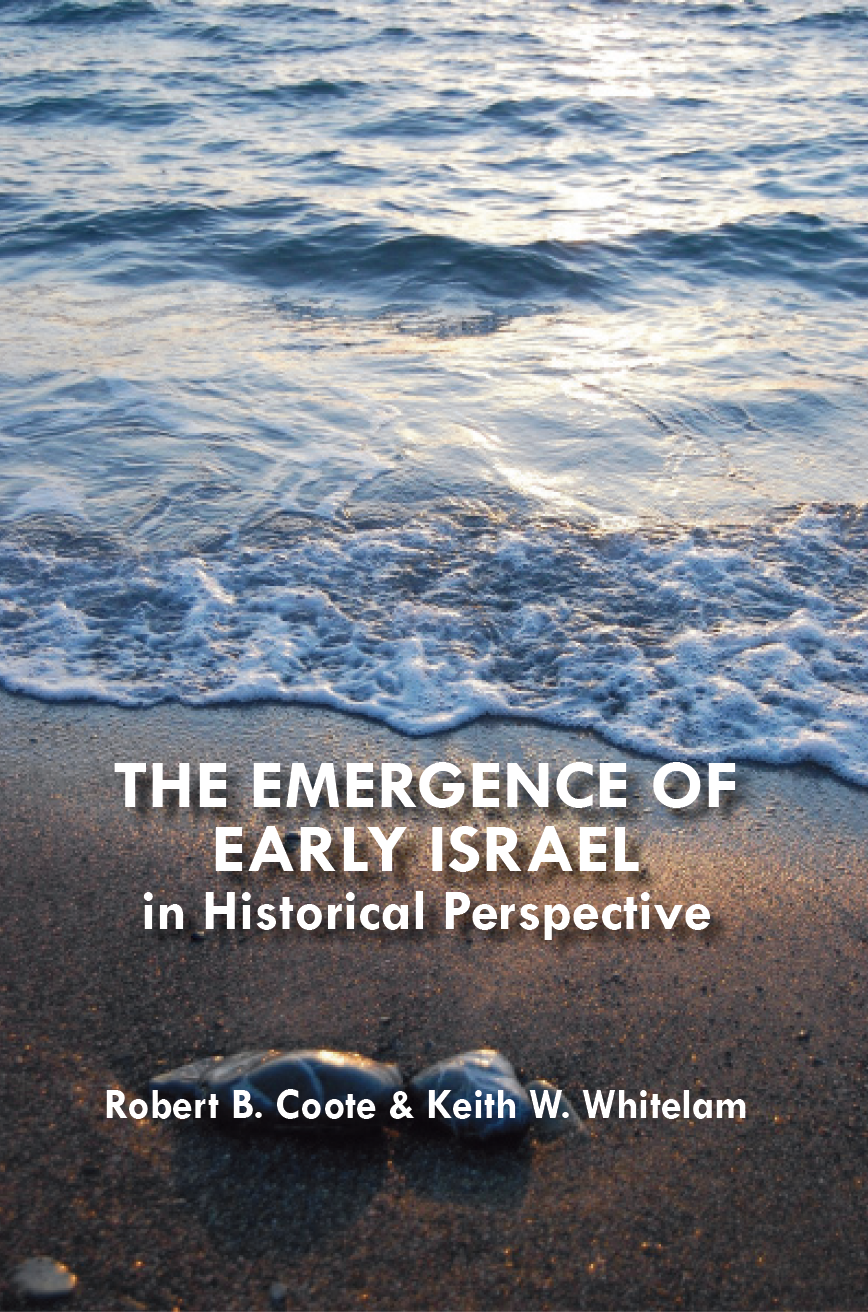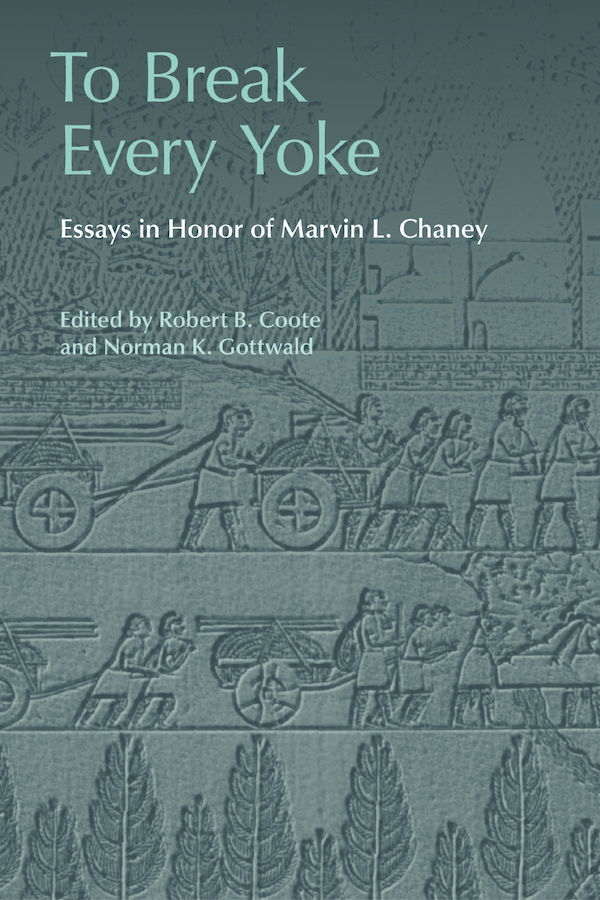
Robert B. Coote
Robert B. Coote is Nathaniel Gray Professor of Hebrew Exegesis and Old Testament at San Francisco Theological Seminary and the Graduate Theological Union.
The Emergence of Early Israel in Historical Perspective
Published: Feb 2010
£20.00
This highly original study takes a panoramic view of history in order to set the emergence of Israel in the broadest possible perspective. It begins with a study of the nature of history writing and the increasing problems involved in utilizing the biblical text for historical reconstruction. The authors suggest an alternative approach which assigns priority to interpreting archaeological data within a broad interdisciplinary framework. The book provides a broad overview of settlement patterns and social relations throughout Palestinian history from the middle of the third millennium BCE to the present day in order to illustrate how the emergence of Israel in the early Iron Age fits into the march of time.
Archaeological evidence for the appearance of dispersed settlements in the highlands and steppes of Palestine at the beginning of the early Iron Age followed by the rapid centralization of this area suggests that Israel emerged within Palestine in response to the decline in east Mediterranean trade at the end of the Late Bronze Age. The development of an Israelite monarchy is seen as being inextricably linked to the factors involved in Israel's emergence-as distinct from much previous research which has presented the monarchy as alien to the origins of Israel.
This volume is a reprint of the 1987 edition with a new preface by Robert B. Coote and Keith W. Whitelam setting the work in the context of recent debates on the history of ancient Israel.
The Emergence of Early Israel in Historical Perspective
£20.00
This highly original study takes a panoramic view of history in order to set the emergence of Israel in the broadest possible perspective. It begins with a study of the nature of history writing and the increasing problems involved in utilizing the biblical text for historical reconstruction. The authors suggest an alternative approach which assigns priority to interpreting archaeological data within a broad interdisciplinary framework. The book provides a broad overview of settlement patterns and social relations throughout Palestinian history from the middle of the third millennium BCE to the present day in order to illustrate how the emergence of Israel in the early Iron Age fits into the march of time.
Archaeological evidence for the appearance of dispersed settlements in the highlands and steppes of Palestine at the beginning of the early Iron Age followed by the rapid centralization of this area suggests that Israel emerged within Palestine in response to the decline in east Mediterranean trade at the end of the Late Bronze Age. The development of an Israelite monarchy is seen as being inextricably linked to the factors involved in Israel's emergence-as distinct from much previous research which has presented the monarchy as alien to the origins of Israel.
This volume is a reprint of the 1987 edition with a new preface by Robert B. Coote and Keith W. Whitelam setting the work in the context of recent debates on the history of ancient Israel.
To Break Every Yoke: Essays in Honor of Marvin L. Chaney
Published: Oct 2007
£50.00
Marvin L. Chaney (San Francisco Theological Seminary and the Graduate Theological Union, 1969 to 2006) enjoys international recognition for his seminal role in defining and developing a social-historical approach to the Hebrew Scriptures.
Among the 20 papers in this Festschrift, Phyllis Bird writes on Israelite women's religious activity outside the household, Robert Coote on the dating of J, William Dever on archaeology and the social world of Isaiah, Patricia Dutcher-Walls on queen mothers and royal politics in late-monarchic Judah, John H. Elliott on the semantics of envy, jealousy, and zeal in the Bible, Frank Frick on sexual imagery in Hosea 1 —3, Norman Gottwald on the interplay of religion and ethnicity in biblical Israel, Ron Hendel on the anthropology of food in the priestly Torah, David Hopkins on agricultural labor in ancient Palestine, Richard Horsley on the political roots of early Judean apocalyptic texts, Carol Meyers on Iron II Judean pillar figurines, Richard Rohrbaugh on Zacchaeus as defender of Jesus' honor, Katharine Sakenfeld on postcolonial perspectives on Rahab, Ruth, and Jael, Luise Schottroff on the notions of world rule and serving God in traditions about Jesus, Keith Whitelam on mapping ancient Israel, Antoinette Wire on the God of Jesus in Mark, and Gale Yee on recovering marginalized groups in ancient Israel.
To Break Every Yoke: Essays in Honor of Marvin L. Chaney
£50.00
Marvin L. Chaney (San Francisco Theological Seminary and the Graduate Theological Union, 1969 to 2006) enjoys international recognition for his seminal role in defining and developing a social-historical approach to the Hebrew Scriptures.
Among the 20 papers in this Festschrift, Phyllis Bird writes on Israelite women's religious activity outside the household, Robert Coote on the dating of J, William Dever on archaeology and the social world of Isaiah, Patricia Dutcher-Walls on queen mothers and royal politics in late-monarchic Judah, John H. Elliott on the semantics of envy, jealousy, and zeal in the Bible, Frank Frick on sexual imagery in Hosea 1 —3, Norman Gottwald on the interplay of religion and ethnicity in biblical Israel, Ron Hendel on the anthropology of food in the priestly Torah, David Hopkins on agricultural labor in ancient Palestine, Richard Horsley on the political roots of early Judean apocalyptic texts, Carol Meyers on Iron II Judean pillar figurines, Richard Rohrbaugh on Zacchaeus as defender of Jesus' honor, Katharine Sakenfeld on postcolonial perspectives on Rahab, Ruth, and Jael, Luise Schottroff on the notions of world rule and serving God in traditions about Jesus, Keith Whitelam on mapping ancient Israel, Antoinette Wire on the God of Jesus in Mark, and Gale Yee on recovering marginalized groups in ancient Israel.


